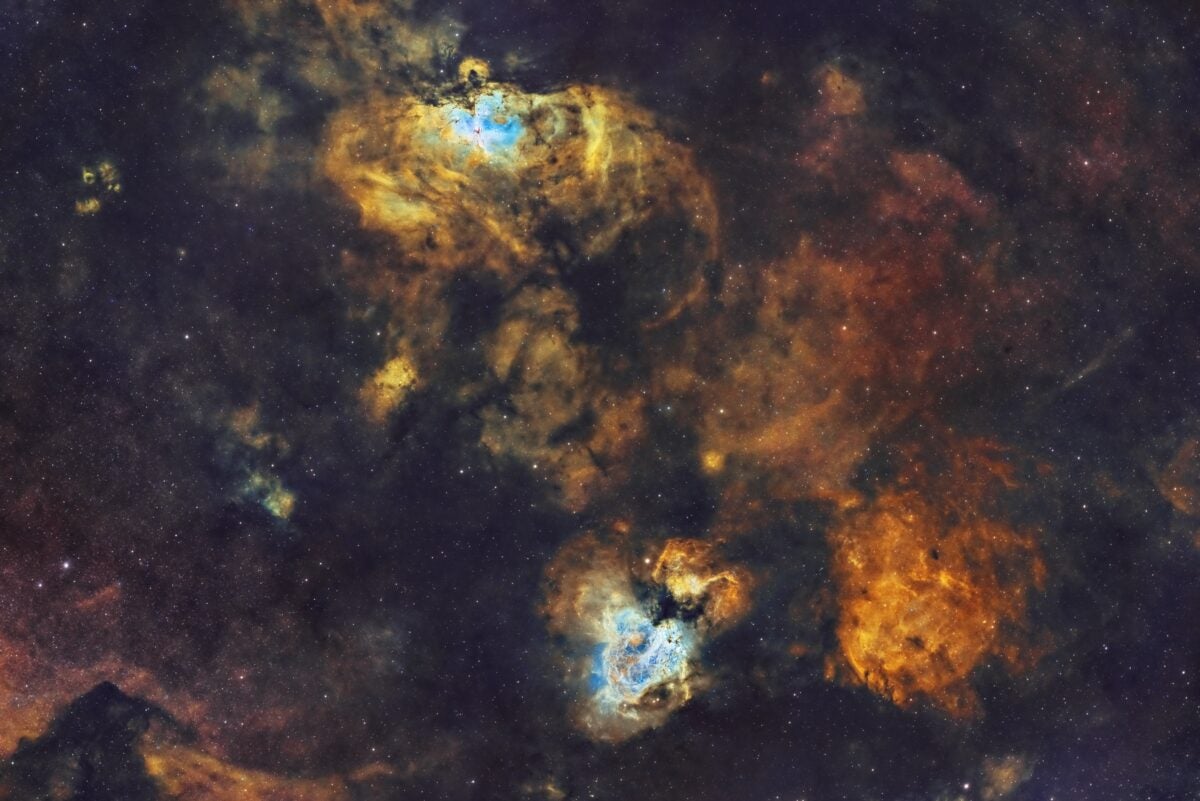The Eagle Nebula was famous by Hubble, but you can also enjoy it — and its neighbor the Omega Nebula — with binoculars or a telescope.

The Eagle Nebula (M16, top) and the Omega nebulae (M17, bottom) are two large star forming regions and popular summertime objects. Credit: Chuck Ayoub
This week, Dave’s breaking down another pair of deep-sky objects that are situated nicely in the evening sky right now: the Eagle Nebula (M16) and the Omega Nebula (M17). Both of these are large clouds of gas, condensing down to form stars. You’ve probably seen the Eagle Nebula’s most famous feature — the Pillars of Creation — which are an example of such star formation. The Eagle can be challenging due to its low surface brightness, but the Omega Nebula is easy to see under a dark sky with a pair of binoculars or your Celestron telescope.
Follow Astronomy magazine, the world’s best-selling astronomy magazine:
🌎 Website: https://astronomy.com
📖 Subscribe: http://subscribe.astronomy.com
📘 Facebook: https://www.facebook.com/AstronomyMagazine
📸 Instagram: https://instagram.com/astronomy.magazine
🐦 X/Twitter: https://twitter.com/AstronomyMag
Shop Celestron telescopes:
🔭 Website: https://celestron.com
Follow Dave Eicher:
📘 Facebook: https://www.facebook.com/davidjohneicher
📸 Instagram: https://instagram.com/eicher.david
🐦 X/Twitter: https://twitter.com/deicherstar

